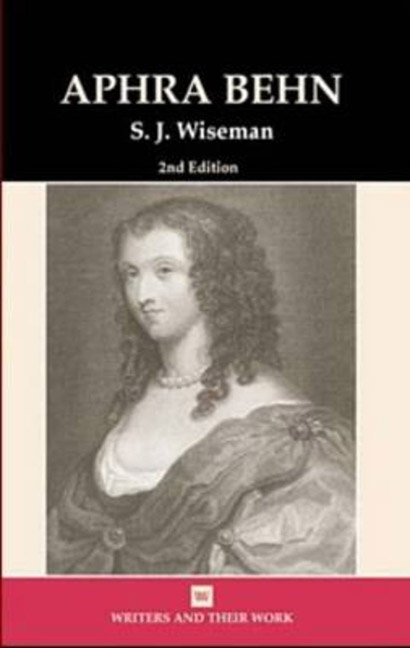6 - Monty and Virginia: Behn in the Twentieth Century
Summary
He would often meet me with such an expression as Che! Che!, accompanied by a conspiratorial smile; or he would look closely at me and murmur ‘Tell me strange things'.
So we read of Montague Summers, one of the two figures who have substantially shaped Behn's modern reception. The other influential figure, of course, is Virginia Woolf. A self-styled Roman Catholic Reverend, Alphonsus Joseph-Mary Augustus Montague Summers (Monty to his friends), was a prolific and controversial man of letters, a homosexual involved in contemporary theoretical debates and subcultures, and probably a Satanist. He was also Behn's first modern editor. Woolf, as an immensely influential commentator on women and writing, needs less introduction; she wrote about Behn in A Room of One's Own (1929) and elsewhere. Summers and Woolf both came to Behn in the first quarter of the twentieth century and their engagements with Behn remain important influences on how she is understood. How readers interpret their influences depends on estimations of their respective careers. In tracing their influence on the way Behn comes to us, it is worth considering their thoughts, circumstances, investments - and differences.
Given their mutual interest in Behn and influence on her reception one might expect Summers and Woolf to have met. It seems that they did not, though Summers did, eventually, sink low enough for Woolf to register his existence. On 3 February 1932 Woolf writes to her nephew Julian Bell from 52 Tavistock Square, W.C.1:
My dear Julian,
I have made enquiries about the Nonesuch Dryden, but they are not such as encourage me - the answers I mean - to buy it. Clive says Summers is an obscene knave; even old Desmond [McCarthy] has nosed out some misprints, which considering the state of Desmond's brain shows that the text must be a pullulating mass of maggots. So I have bought you some books instead …
But if we look back to the teens and twenties we can see that the parallel careers of Behn's two readers are suggestive of different styles of Englishness and identity, as much as editorial practices, in the inter-war period.
- Type
- Chapter
- Information
- Aphra Behn , pp. 109 - 115Publisher: Liverpool University PressPrint publication year: 2006

